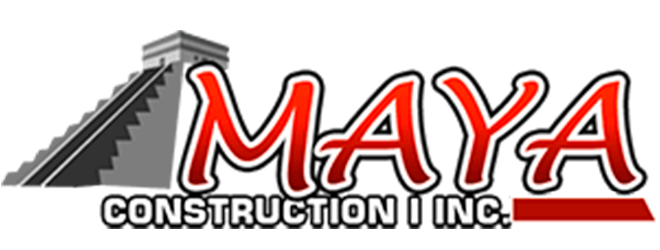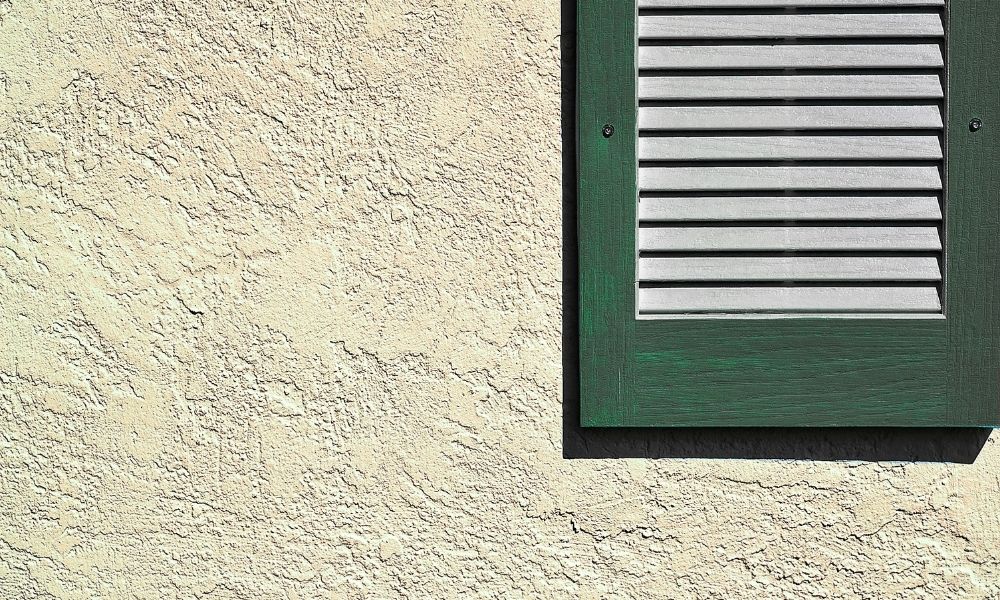
- Thu, 25 Nov 2021
- Maya Construction 1 Inc.
EIFS vs. Stucco: Things You Must Be Aware Of
Are you looking to siding your house or business? There is a competition between Exterior Insulation and Finish System (EIFS) vs. stucco in the market when it comes to creating a durable finish. Both have distinct processes of installation, appearance, and properties.
Sometimes, it would be difficult to differentiate for someone who doesn’t know about these two siding materials. Both come with different characteristics, pros, and cons, but their application will depend on the structure type, weather conditions, and other factors.
Keep reading this blog to discover what stucco and EIFS, and their different characteristics!
What Is Stucco?
Stucco is one of the most used cement-based plaster materials for surfaces. Most homeowners use traditional Portland cement lime (stucco) to reinforce their house’s structure or make different designs on the wall. Between the main elements that compose stucco, the most important are cement, lime, and water.
Moreover, this type of finish system will help you shape different architectural designs and give different textures to your house. Besides, many homeowners utilize traditional stucco to reinforce the home exterior to resist rains, humidity, sunlight, and other weather conditions. Also, when you have a space made with wood, stucco helps avoid water filtration, moisture, and mold.
It is cheaper than most of the finish systems, and it is durable. After stucco application, your house will resist like a rock. Just imagine that this plaster helps to make the concrete even more resistant to different conditions.
What Is Exterior Insulation and Finish System (EIFS)?
As the name suggests, EIFS is a system that helps to create an exterior plaster wall to insulate finished surfaces. It resists different temperatures and weather conditions, and it can last over 40 years, depending on the maintenance. Homeowners used this kind of composite material to build a barrier or drainage wall system.
Furthermore, EIFS has been called “artificial asbestos” due to the different materials that compose this system, such as fiberglass, polystyrene, base finish coat, and sheathing boards. Besides, many constructors have called this synthetic system stucco too.
Is the EIF System a Type of Stucco? “Synthetic Stucco”
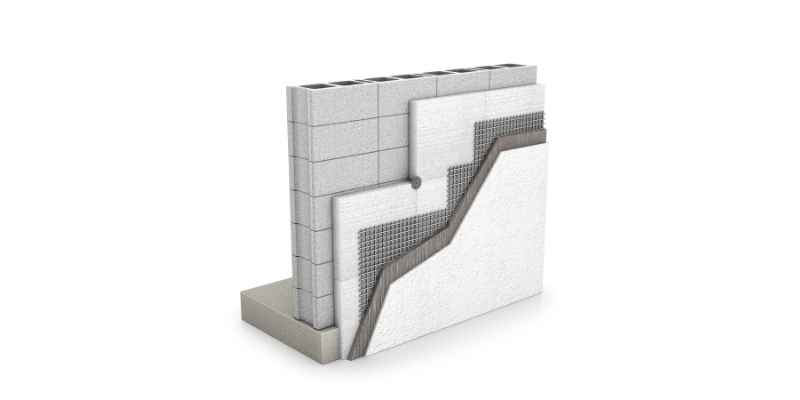
As mentioned above, many constructors have called EIFS “synthetic stucco,” but it is not. It receives that name because, at the end of the day, EIF systems have the same purpose as stucco, which is to insulate and create a protective finish coat over the exterior walls.
Moreover, as mentioned before, stucco is made from some natural materials, but EIFS is not. This last one utilizes layers made from synthetic materials. That aspect gives the name “synthetic stucco” because the materials are polystyrene foam, fiberglass mesh, and finishing coats (all synthetic.)
EIF systems have become more popular due to their energy efficiency, durability, and fire resistance. Below are some other significant differences between stucco and EIFS.
Synthetic Systems vs. Traditional Stucco
As mentioned above, synthetic materials like the fiberglass mesh make EIFS extraordinarily durable and resistant. The material can last over 60 years; its system is prepared for impact damage. Saddle, the synthetic materials are expensive, so the installation too.
Below, there are some advantages of traditional stucco, but its natural materials make this material eco-friendly, long-lasting, and inexpensive.
EIFS vs. Stucco: Why Are They Different?
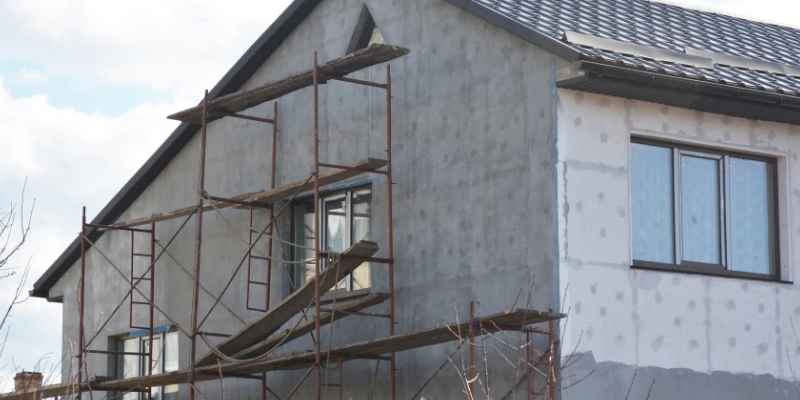
The main difference between EIFS vs. stucco remains in the price, durability, flexibility, and application. Stucco is cheaper, easy to install, and resistant, but it is porous. Meanwhile, EIFS must be installed by certified constructors; it is flexible, and the insulating board is non-porous, so it doesn’t tend to crack.
Moreover, stucco and EIF systems have a lot of advantages, but they also come with some disadvantages. On the one hand, as you read above, stucco could prevent moisture, but moisture will take control if there is no correct finish over the wall.
It has been shown that stucco problems are linked to porous factors, so when it is exposed to heavy wet conditions, it absorbs the moisture that can crumble the wall. Also, stucco is prone to crack if there is not a correct foundation.
On the other hand, the EIF system is more prone to water filtration and root sheathing. As it is insulated, it is hard to identify mold or moisture. Also, if you don’t get certified and experienced EIFS installers, your house could go down.
But it doesn’t mean that you will suffer from those issues because EIFs have a water-resistant barrier. The problem is due to the poor installation by some uncertified contractors.
Why Is It Important to Count with Stucco and EIFS over Cladding Systems?
As you might know or maybe not, a cladding system helps reinforce the primary structure of a building and creates the exterior surface. Cladding systems involve the installation of the weather-exposed outer layer, the insulation system, and the different structural supportive barriers.
Moreover, the purpose of the cladding system is to protect and reinforce the structure against external elements like seasonal changes, strong winds, heavy rains, and the exterior environment. The system comes with multiple benefits, such as noise control and extreme protection.
Stucco and EIF systems are central elements of the cladding systems because they insulate and protect all the internal materials. Avoiding its application can cause several damages over the exterior surfaces. Besides, if there exists poor installation, water can filter, provoking rust, corrosion, mold, and mildew over the entire structure.
Get Assisted
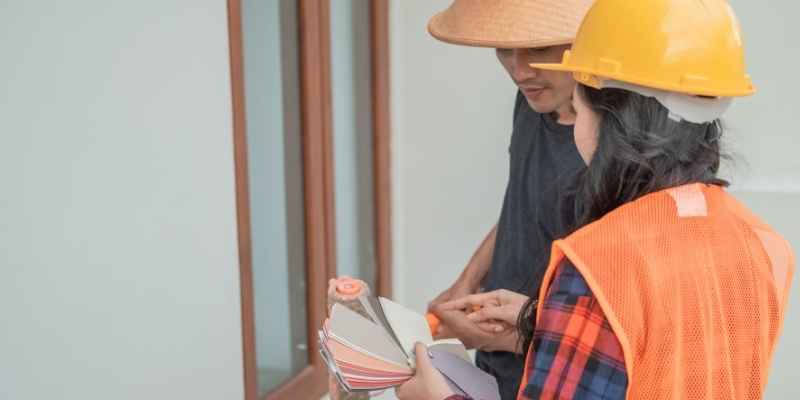
Now that you see the battle between EIFS vs. stucco, it’s time to see if they are great for your house. It’s time to choose the best one for your home. We highly recommend experts to avoid wasting money and structural damages. Our team has over 35v years of experience delivering professional service.
Stucco is vital for keeping your walls strong before any natural disaster. If you are thinking about stucco installation or want to restore the existing one, we are the best in the zone.
Don’t hesitate to contact us for any doubt you might have. Remember that constructing or remodeling your home comes with different procedures you should respect. We will be more than pleased to answer your doubts.
